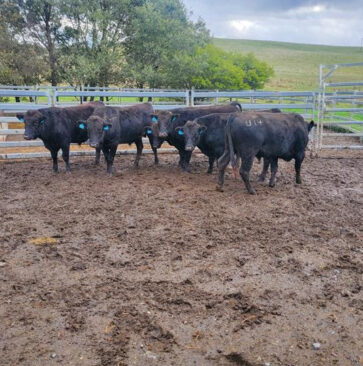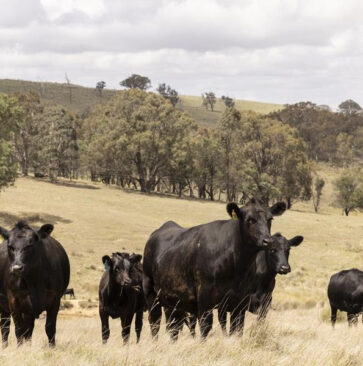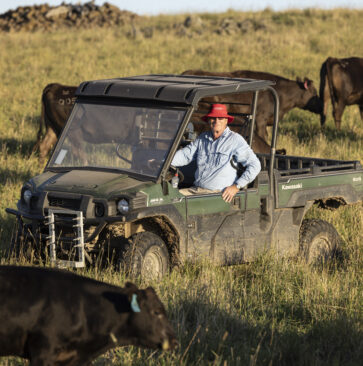It is raining, which is marvellous. A great opportunity to share some news from Koolang Wagyu, Gurrundah.
We have joined a syndicate and purchased one of the best bulls in the recent Mayura sale. This is Mayura Pioneer, (ADBFP0879) a son of the famous Itoshigenami JNR. While we paid over $40,000 for the bull, he will add to the genetic profile of our herd in future years. We have been using straws from brothers of this bull for some time. This one is extremely attractive because he is free from all Genetic Disorders. Most of the sons of JNR are in fact carriers of Factor 11.
Below is a short description of what is F11 and why it is potentially important. This has been lifted from the Wagyu Association website.
Wagyu Genetics
All breeds of cattle, including Wagyu, are prone to undesirable genetic conditions. Fortunately, advances in molecular genetics have facilitated the development of DNA tests for their management.
Breed Societies are at the forefront of the development of strategies to manage genetic conditions and seedstock members are leading the industry with their uptake of this technology. The key inherited recessive genetic conditions in Wagyu: Spherocystosis, Chediak Higashi Syndrome, Claudin 16 Deficiency and Factor XI Deficiency.
HOW ARE THE CONDITIONS INHERITED?
Research from Japan indicates that there are four inherited recessive genetic conditions for Wagyu: Spherocystosis (B3), Chediak Higashi Syndrome (CHS), Claudin 15 Deficiency (CL16) and Factor XI deficiency (F11). This means that a single pair of genes controls each condition. For this mode of inheritance two copies of the undesirable gene need to be present before the condition is seen.
The known genetic conditions of Wagyu are as follows:
Spherocystosis (B3) – This is a disorder of the surface membrane of the erythrocyte (red blood cells). The protein from the B3 gene makes up the basic structure of the erythrocyte. Cattle that are homozygous (have two copies of the recessive allele) have pernicious anaemia (bleeding caused by the abnormal red blood cells). Death normally occurs within the first 7 days after birth. Some cases live to adulthood but there is a severe retardation in growth.
Chediak Higashi Syndrome (CHS) – CHS is a macrophage disorder (a white blood cell that has an important role in the immune response to disease). If cattle have a malfunctioning immune system, this makes them unable to resist the bacterial challenge. Blood is slow to coagulate so often the first indicator is unusual umbilical cord haemorrhage at parturition (calving). Cattle with this syndrome often have an unusually pale coat colour.
Claudin 16 Deficiency (CL16) – CL16 (also known as RTD or Renal tubular dysplasia) is a gene disorder on chromosome 1 and causes kidney failure (chronic interstitial nephritis often with zonal fibrosis or excess of fibrous connective tissue). This disorder results in terminal kidney failure and the onset can occur anytime from late adolescence. Cattle are unlikely to live more than 6 years.
Factor XI deficiency (F11) – F11 is a plasma protein that participates in the formation of blood clots. Factor XI deficiency is an autosomal disorder that is associated with mild bleeding in Wagyu. Affected animals show prolonged bleeding time and abnormal plasma coagulation after trauma or surgical procedures such as castration or dehorning. It is also possible that Carrier x Carrier matings have increased difficulty producing viable fertilised embryos or full‐term pregnancies and are may be repeated (return to cycle) breeders.
Note – this is generally a non-lethal recessive condition with affected animals being able to live and breed as normal. (occurs in Holsteins) Note – There are other recessive genetic conditions known to exist in Wagyu cattle (e.g. F13) however they have not been identified in the Australian Wagyu population.
Cattle For Sale
In terms of our own bulls they are selling well and following the success of the Mayura sale we are contemplating increasing prices for next year.
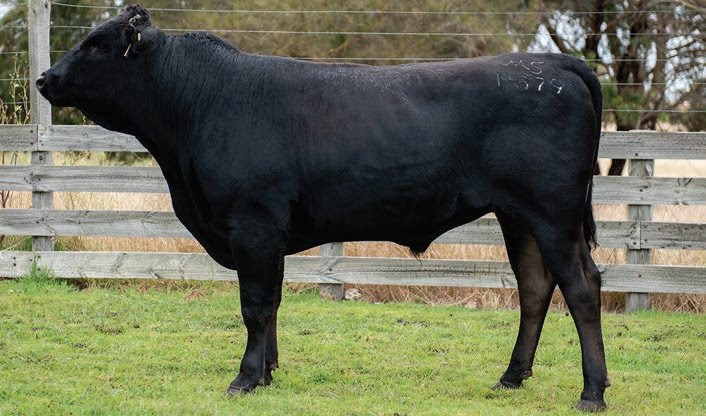
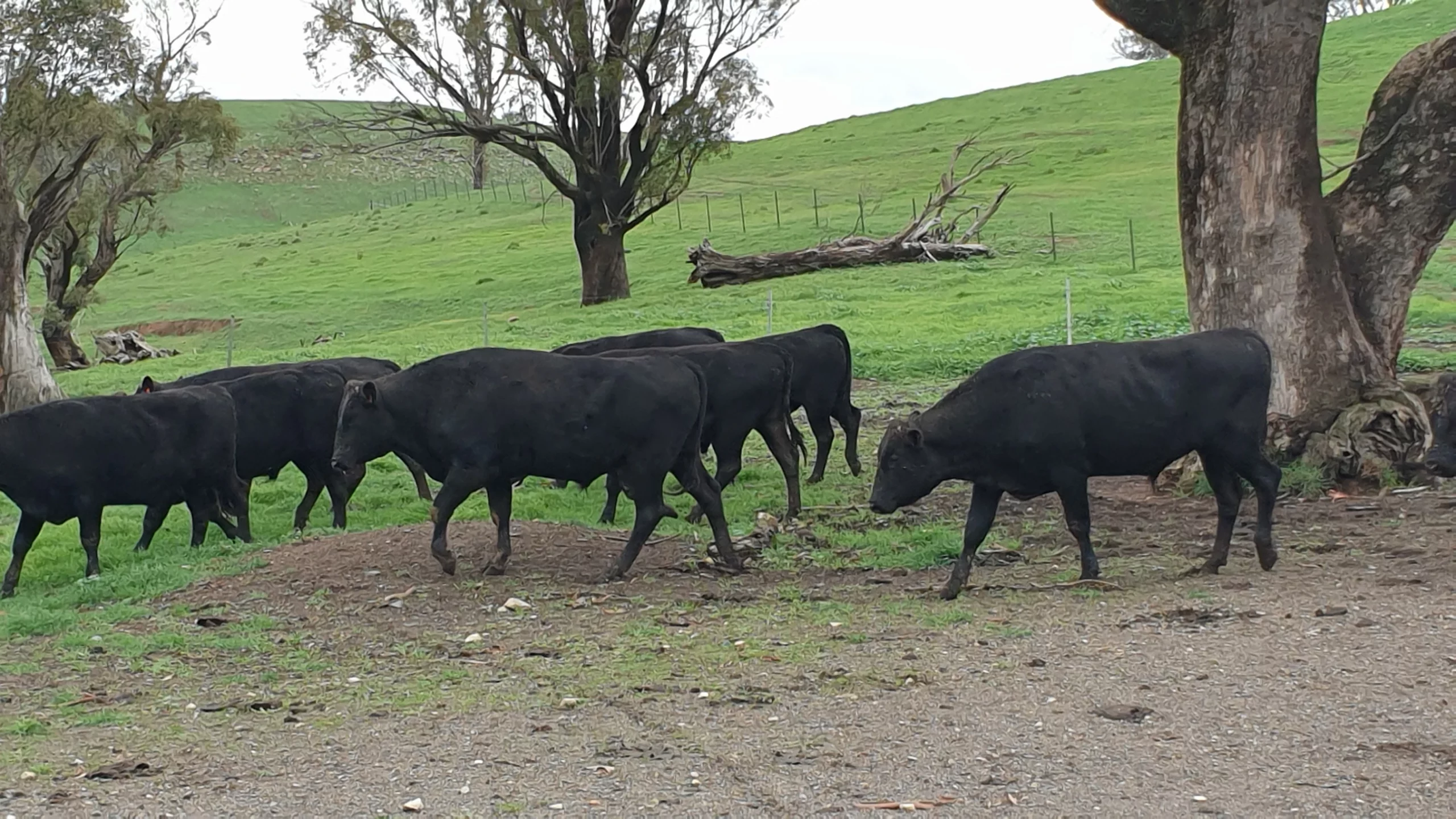 P Bulls going back into the paddock after weigh-in
P Bulls going back into the paddock after weigh-in